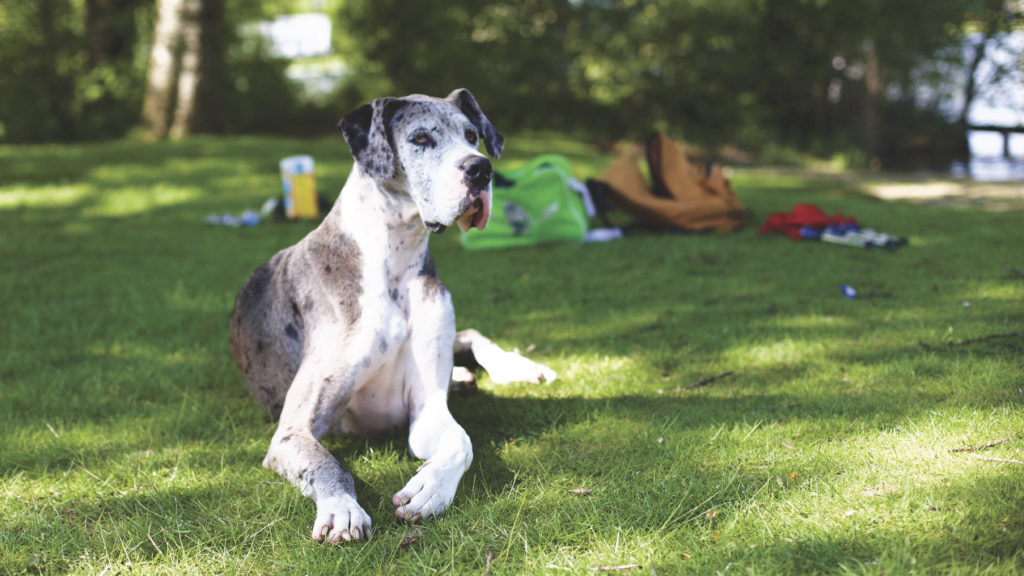Dog owners are constantly struggling with finding the right foods that their four-legged friends can consume. Dogs are particularly open to eating a variety of foods that their human companions consume. This is true even with foods that are dangerous to dogs. One such food is grapes. Grapes, and their dried form raisins are acutely toxic to dogs and should be avoided at all times. This article will dive into why grapes are toxic to dogs, what symptoms of grape toxicity are in dogs, and what steps you as an owner should take in the event that your dog consumes grapes.
Why are Grapes Toxic to Dogs?
Grape and raisin toxicity in dogs is a well-known condition that is not limited to specific breeds. What is unusual about grape and raisin toxicity in dogs is that the exact cause of the toxicity, and the specific compounds that cause the toxicity, is unknown to-date. What is known regarding grape toxicity in dogs is that a fatal dosage can be extremely small, however, there exists a wide variance in observable effects in different dogs. There is no key factor that ties the dosage size to the effect in dogs, as the toxic effect of grapes can occur in any dog across breed, gender, and age. The size of the dog can have some effect in limiting the fatal dosage, although specific information regarding fatal dosages of grapes for dogs is largely dependent on the individual dog and their sensitivity to grape toxicity.
Grape toxicity is especially dangerous because it can lead to the rapid onset of kidney failure. Consumption of even a small number of grapes or raisins in some dogs will result in kidney damage, leading to acute kidney failure within a short period of time. The damage caused on the kidneys also results in anuria or a cessation of urine production. One common misconception about grape toxicity in dogs is that the toxic compound in grapes is found in the skin of the grape. This leads many dog owners to believe that the flesh of grapes is safe for their dog to consume. This, however, is simply not true. Any part of the grape should be avoided in dogs, including the flesh. In fact, many researchers believe that the toxic compound in grapes is found in the flesh of the grape and not the skin. Because there exist so many unknown variables concerning grape toxicity in dogs, it is imperative that you monitor your dog closely and ensure that he doesn’t have access to grapes or raisins at any time.
Symptoms of Grape Toxicity
Symptoms of acute grape toxicity can begin to appear within a few hours of consumption of grapes or raisins. Typical symptoms including vomiting and diarrhea, loss of appetite, and weakness. Decreased urine production or a complete lack of urine production, anuria, will occur in dogs that are experiencing kidney damage as a result of grape consumption. Your dog may also show signs of dehydration. A quick way to determine if your dog is dehydrated is to gently pinch his skin at the scruff of his neck. Normal hydration levels will cause the skin to return to its normal shape immediately. Your dog may also exhibit signs of abdominal pain, particularly when the area is manipulated or touched.
What to Do if Your Dog Has Consumed Grapes
If you believe your dog has consumed grapes you must seek medical attention for him immediately. Grape toxicity is a rapidly progressing medical emergency that can result in kidney failure and death in some dogs. While some dogs may consume a relatively large number of grapes and not show any negative signs, it is best not to take chances. Your first step should be to contact your veterinarian, who may guide you through the process of inducing vomiting if your dog hasn’t already been vomiting. However, most veterinarians will require you to bring your dog in so that his condition can be stabilized as much as possible and his stomach pumped if necessary. As a dog owner, be mindful of the symptoms of grape and raisin toxicity. As with any toxic food source, the best treatment for this condition is prevention. Owners should be conscious of when they have grapes in the house, and whether they are accessible to their four-legged friend.




